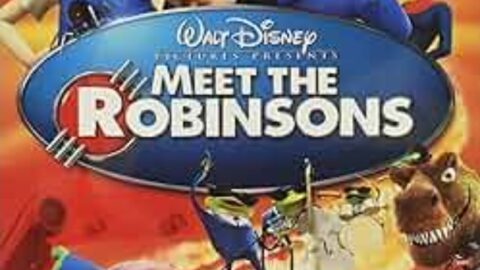“Great minds discuss ideas; average minds discuss events; small minds discuss people.” – Eleanor Roosevelt
Eleanor Roosevelt’s quote highlights three different levels of conversation and thinking: discussing ideas, discussing events, and discussing people. Let’s break down each category in detail.
Great Minds Discuss Ideas
Discussing ideas means engaging in abstract, intellectual, and philosophical conversations that explore new concepts, principles, and solutions to societal or existential questions.
What Are Great Ideas?
Great ideas are fundamental concepts that shape history, science, politics, philosophy, and human progress. Some examples include:
- Philosophy & Ethics: What is justice? What is the meaning of life?
- Politics & Governance: Democracy vs. authoritarianism, free markets vs. socialism.
- Science & Innovation: The theory of relativity, artificial intelligence, quantum mechanics.
- Religion & Spirituality: The nature of God, free will vs. predestination, morality.
- Economics & Society: The gold standard vs. fiat currency, universal basic income, global trade.
Why Discussing Ideas Matters?
- Shapes the future: The greatest advancements in human history started with ideas (e.g., democracy, human rights, the internet).
- Encourages critical thinking: Engaging in deep discussions challenges people to expand their perspectives.
- Fosters innovation: New ideas lead to discoveries, problem-solving, and progress.
Example:
Instead of arguing about a specific politician, a discussion about the role of government in society is an idea-driven conversation.
Average Minds Discuss Events
Discussing events focuses on what is happening in the world, history, or current affairs. This includes news, historical moments, and social trends.
What Are Events?
Events can be:
- Current Affairs: Elections, wars, economic crises, scientific breakthroughs.
- Historical Events: The fall of Rome, World War II, the Industrial Revolution.
- Cultural Events: The rise of social media, technological advances, artistic movements.
- Personal Events: Weddings, job promotions, community changes.
Why Discussing Events Matters?
- Keeps people informed: Understanding history and news helps individuals navigate life.
- Connects society: People relate to shared experiences (e.g., discussing 9/11 or a global pandemic).
- Influences decision-making: Analyzing events helps predict trends and shape future actions.
However, staying at the level of discussing only events without deeper analysis limits intellectual growth. Events should be examined in the context of why they happened and what they mean.
Example:
Instead of only talking about a political debate, a deeper discussion would analyze the political philosophy behind each candidate’s views.
Small Minds Discuss People
Discussing people means focusing on personalities, gossip, and individuals rather than their ideas or contributions.
What Does It Mean to Discuss People?
- Gossip: Talking about others’ personal lives, mistakes, or scandals.
- Celebrity Culture: Focusing on the lives of actors, athletes, influencers rather than their work.
- Character Attacks: Criticizing people without discussing their actions or ideas.
- Office Drama: Who got a promotion, personal conflicts, etc.
Why Discussing People Can Be Unproductive?
- Lacks depth: Focusing on personalities instead of ideas or events leads to shallow conversations.
- Creates division: Gossip and personal attacks foster negativity and conflict.
- Distracts from real issues: Instead of analyzing policies or solutions, discussions stay stuck on personal scandals.
However, analyzing influential figures in history, leadership, or morality (in a meaningful way) can be valuable. The issue is when discussions revolve around personal flaws and scandals rather than deeper contributions.
Example:
Instead of discussing whether a politician is “good” or “bad” as a person, a deeper conversation would analyze how their policies impact society.
Thoughts
- Great minds discuss ideas → What should society aim for? How can we solve problems?
- Average minds discuss events → What happened? Why? What are the consequences?
- Small minds discuss people → Who said what? Who is better? Who is to blame?
The best conversations start with events, analyze the people involved, but ultimately focus on the ideas that shape history and the future.
Discussions about sporting events, concerts, and entertainment generally fall under “average minds discuss events” and “small minds discuss people,” depending on how the conversation is framed.
When Talking About Sports and Entertainment is “Average Minds Discuss Events”
- Discussing the Super Bowl, NBA Finals, World Series, or NHL playoffs as major events in culture and society.
- Analyzing team strategies, game-changing moments, or trends in sports history.
- Discussing how sports affect economies, cities, and fan culture.
- Talking about how concerts and festivals influence culture (e.g., how Woodstock shaped a generation).
When Talking About Athletes & Celebrities is “Small Minds Discuss People”
- Obsessing over personal lives of athletes, musicians, or actors (who they date, scandals, gossip).
- Engaging in fan drama (e.g., “Is LeBron better than Jordan?” in a way that’s just about ego).
- Focusing only on the fame and wealth of celebrities rather than their work or impact.
- Criticizing athletes or musicians for personal reasons rather than analyzing their performance.
How to Elevate the Conversation
Instead of just who won or lost, focus on:
- The impact of sports and music on culture and society.
- How technology is changing the entertainment industry.
- The philosophy of competition, teamwork, and perseverance.
- Lessons from athletes, musicians, and artists on discipline and success.
This shifts the conversation from shallow entertainment talk to a deeper analysis of ideas and impact.
The idea of “bread and circuses” (a term from ancient Rome) perfectly parallels how the oligarchs and elites use sports, entertainment, and celebrity culture to keep the masses distracted, pacified, and uninformed about deeper societal issues.
“Bread and Circuses” – Controlling the Masses
The phrase “bread and circuses” (from the Roman poet Juvenal) refers to how the Roman elite provided free food (bread) and grand spectacles (circuses, gladiator games, and theater) to keep the population distracted from political corruption, economic decline, and loss of freedoms.
This same tactic is used today:
- Sports as a Distraction – Intense emotional investment in Super Bowls, NBA Finals, and World Cups distracts people from economic collapse, government overreach, and globalist agendas.
- Celebrity Culture as a Mind Trap – The media bombards people with gossip about actors, musicians, and influencers, preventing them from focusing on deeper issues.
- Entertainment as Escapism – Streaming platforms, music festivals, and pop culture numb critical thinking by keeping people entertained but uninformed about world affairs.
How the Elites Use This to Control Society
The ruling class understands that an uninformed and distracted population is easier to control. They use sports, entertainment, and celebrity culture to:
- Suppress Critical Thinking – If people are obsessed with who won a game or what a celebrity wore, they won’t question corrupt policies, government overreach, or financial enslavement.
- Divide and Conquer – Rivalries in sports, music, and pop culture are used to create tribalism, making people emotionally invested in meaningless battles instead of uniting against real oppression.
- Encourage Hedonism and Materialism – The focus on luxury, fame, and pleasure keeps people from seeking wisdom, faith, or self-discipline.
- Keep People Dependent on the System – If society is distracted, they won’t resist when the government expands its power through surveillance, digital currency, or social credit systems.
What Can Be Done?
The solution isn’t to completely reject sports or entertainment but to recognize when they’re being used as a tool of control and make conscious choices to think critically and seek higher knowledge:
- Balance recreation with real learning – Enjoy sports and entertainment, but don’t let them dominate your time and thinking.
- Focus on wisdom and real-world issues – Read about economics, history, philosophy, and faith instead of just pop culture.
- Reject celebrity worship – Understand that athletes and entertainers are tools of distraction, not heroes to be idolized.
- Question the system – Be aware of who benefits from mass distraction and why they push it so aggressively.
- Seek God, Family, and Truth over Entertainment – Strengthen personal faith, family bonds, and intellectual growth rather than getting lost in meaningless distractions.
Final Thought
The elites want people to be small-minded and distracted. The key to breaking free is to elevate our thinking—to discuss ideas, principles, and truth rather than just events and personalities. A wise and informed population is far more dangerous to the oligarchs than a society hypnotized by bread and circuses.







